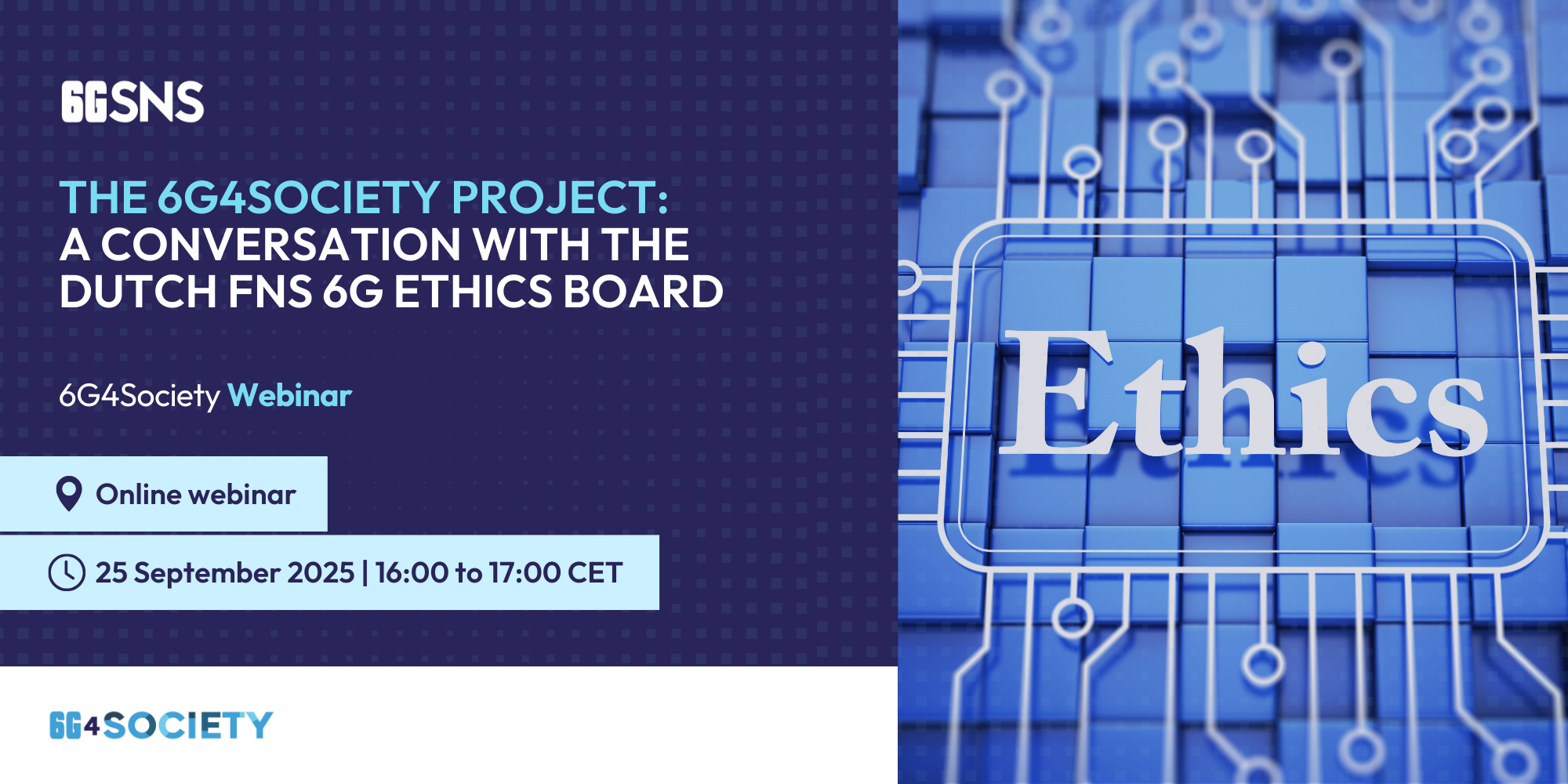
- This event has passed.
The 6G4Society project: A conversation with the Dutch FNS 6G Ethics Board

Overview
In the mid-1990s, the Future and Emerging Technologies (FET) programme launched i3 – Intelligent Information Interfaces, also known as The Disappearing Computer. This visionary initiative brought together engineers, ethnographers, designers, artists, computer scientists, and philosophers to explore real-world use cases in schools, offices, and hospitals.
Unfortunately, the programme was discontinued. Human-centered exploration fragmented into UX, usability, and Human-Computer Interaction (HCI), while technical development followed a separate trajectory—focusing on situated and autonomous computing. This division, in hindsight, proved detrimental:
- From the technical side, human interaction became an afterthought.
- From the HCI perspective, technical frameworks were accepted as fixed and retrofitted into user contexts.
Today, we have an opportunity to reunite these paths, to create connectivity grounded in ethical design and social inclusion.
Why 6G?
6G networks promise higher speeds, lower latency, and the capacity to connect many more devices than 5G. These features not only enhance performance and reliability but also create opportunities for:
- Increased energy efficiency
- Greater sustainability
- Stronger digital inclusion
- A more resilient, human-centric digital society
Although 6G is expected to be deployed around 2030, groundwork is already underway, and the ethics of connectivity must be part of the design process from the start.
Webinar objectives
- Present 6G as more than just a technical advancement, but a catalyst for transformative connectivity
- Spark a broad, cross-disciplinary discussion around the question: What kind of connectivity do we want?
- Introduce the work of the Dutch 6G Ethics Board and the Future Network Services (FNS) ecosystem
- Explore Key Value Indicators (KVIs) as tools for ethical, meaningful innovation beyond commercial KPIs
Target stakeholders
- Regional and national regulators, legislators, and policy makers
- Telecom companies working on 5G/6G implementation and use cases
- Ethnographers, sociologists, philosophers, and others exploring the social impact of tech
- Anyone interested in the emerging triangle of value: IoT, AI, and 6G
Session focus
We are in a critical five-year window to embed ethics as a core component – not an afterthought – in technical frameworks. Through this discussion, we aim to:
- Align sustainability, European values, and societal impact with network design
- Develop intuitive, inclusive digital experiences
- Provide an actionable ethics toolbox for innovators and policymakers
Anticipated outcomes
- Deepen our understanding of the ethical and social dimensions of next-generation technologies
- Develop a shared language to move beyond hype or fear toward meaningful debate
- Introduce Key Value Indicators (KVIs) as tools for building purpose-driven use cases
- Highlight how European programmes are scaling up ethical innovation in the 6G space
Agenda
Opening (10 min)
- Welcome, introduction and brief overview of the 6G4Society project by Monique Calisti – Founder and President of Digital for Planet, CEO of Martel Innovate, and Project Coordinator of 6G4Society
LinkedIn
Featured Contributions (35 min)
- Aaron van Diepen – TU Delft, FNS Ethics Board
Profile - Katrina Petersen – Senior Research Consultant, Societal Value at Public Safety Communication Europe (PSCE), 6G4Society Project
LinkedIn - Representative from the FNS 6G Ethics Board
Moderated Q&A (10 min)
- Led by Rob van Kranenburg – Senior Policy and Communication Expert at Martel Innovate
LinkedIn
Closing Remarks (5 min)
- Anna Aseeva – Policy and Sustainability Expert at Digital for Planet
LinkedIn


